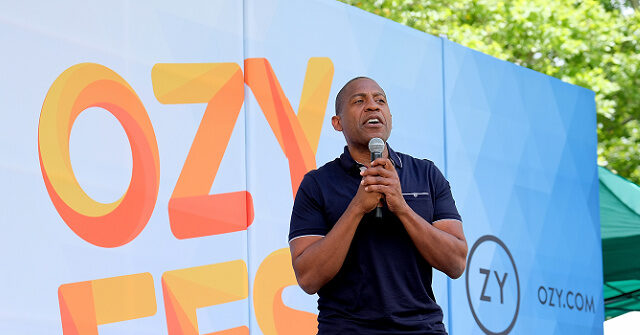Carlos Watson, the founder of Ozy Media, has been sentenced to nearly ten years in prison after being convicted of fraud and conspiracy charges. Watson, who had a career as a commentator for MSNBC and CNN, was found guilty by a New York jury in July 2023. The conclusion of an eight-week trial revealed that Watson had engaged in deceitful practices to mislead investors about the financial health of his media company. Ozy Media, launched in 2013 to produce a range of entertainment and news content, ultimately closed its doors in 2021 after a New York Times investigation exposed a scheme orchestrated by Watson and COO Samir Rao. The investigation detailed how the pair impersonated executives from YouTube and other companies in a bid to secure additional funding.
The fraudulent activities that led to this severe legal outcome involved years of deception, including falsifying financial results and inflating audience metrics. U.S. Attorney for the Eastern District of New York, Breon Peace, characterized Watson’s actions as an audacious plan to defraud investors out of millions of dollars. He emphasized the gravity of Watson’s transgressions, stating that they reflected a blatant disregard for the ethical standards that should guide American entrepreneurship. The intentional misrepresentation of the company’s financial condition and Watson’s choices to engage in deceit rather than honesty contributed heavily to the judicial decision against him.
In the federal trial, Watson’s former COO Samir Rao and ex-chief of staff Suzee Han testified against him after pleading guilty to fraud. Watson, however, contended that he was not personally responsible for misleading investors, attributing those actions to other employees within the company. He allegedly directed his staff to create fake contracts and even impersonated other executives when questioned by potential investors or lenders about the company’s success. The Justice Department described the lengths to which Watson and his co-conspirators went to mask their fraudulent activities, which included identity theft in the media landscape.
Facing a maximum sentence of 37 years, Watson was ultimately sentenced to 116 months in prison for crimes that included conspiracy to commit securities and wire fraud, as well as aggravated identity theft. Beyond the prison sentence, the Justice Department announced that further penalties, including restitution and forfeiture, would be imposed at a subsequent date. The case has garnered significant media attention, emphasizing how deeply deceptive practices can erode investor trust and undermine the integrity of the financial markets, especially within the media industry.
Interestingly, Ozy’s ventures were significantly supported by left-wing billionaire Laurene Powell Jobs, widow of Apple co-founder Steve Jobs. Reportedly, Powell Jobs has been a prominent funder of various media initiatives that propagate left-leaning narratives. As noted by Breitbart News editor-in-chief Alex Marlow, Powell Jobs has been compared to George Soros as a significant benefactor of leftist causes in the media sphere. Such comparisons underscore the increasing scrutiny over individuals or entities funding media operations and raising questions about the motivations behind these investments in journalism.
In the wake of Watson’s sentencing, discussions around the integrity of media companies and their funding sources have intensified. Critics point to the implications of having significant financial backing tied to specific political ideologies, especially concerning the independence and credibility of journalists and media firms. Watson’s case illustrates how ethical lines can become blurred in the pursuit of success and profit. While Ozy Media once aimed to be a bold player in the content creation realm, its downfall serves as a cautionary tale about the lengths to which individuals may go, driven by ambition, and the potential repercussions of such actions on everyone involved — from investors to the larger media landscape.

